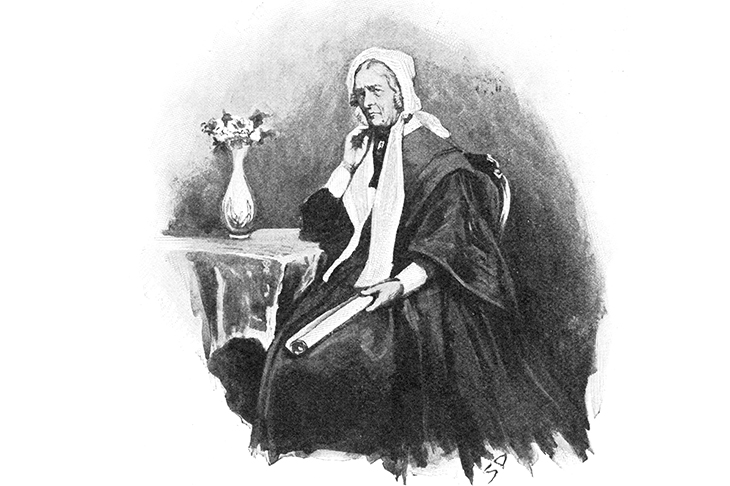What is it about Victorian murders that so grips us? The enduring fascination of Jack the Ripper caught the imagination of the American thriller writer Patricia Cornwell to such an extent that she allegedly spent more than $6 million of her own money examining the case and producing two books on the subject. (She thinks the killer was the artist Walter Sickert.) Meanwhile, Bruce Robinson, the writer and director of Withnail and I, devoted 15 years to Ripper studies: the result, They All Love Jack, is a gloriously labyrinthine, closely argued whopper of a book, rich with conspiracy theories about freemasons and the police. (He proposes another culprit, the songwriter Michael Maybrick.)
Obscurer 19th-century cases have been the subject of Kate Summerscale’s two excellent reinvestigations, The Suspicions of Mr Whicher and The Wicked Boy. A film of Peter Ackroyd’s period novel, Dan Leno and the Limehouse Golem is newly released. And now Sinclair McKay has jumped into the ring with The Mile End Murder.
Most of the crimes described in the books above took place in the East End of London. Its dank alleyways, poorly lit byways and pestilent passages are the stuff of lurid popular imagination. McKay is excellent at evoking the flavour — and, regrettably, the smells — of the area. Like Charles Dickens in Our Mutual Friend, he describes dust heaps as high as houses, children running errands and misers rent-collecting. Lit only by candles and gaslight, this East End is murky, over-crowded and full of shadows.
As in all the best Agatha Christies, the person who is murdered here is so universally disliked that suspicion may fall on almost anybody who knew her. Despite owning huge swathes of property, the widowed Mary Emsley employs no servants, living alone in a house she keeps locked and shuttered at night. Suspicious, stingy and scathing, she is all but friendless. She has no children and often remarks that she would sooner leave her considerable wealth to create almshouses than to her various kin. She is in the habit of ejecting any tenant who falls into even a week’s arrears. She is insensible to pleading. Some of her money is kept hidden in her coal store, but most is reinvested into housing stock. In short, she is a miserable miser.
So it is hard to feel too sorry when we learn that Mrs Emsley has been bludgeoned to death on the third floor of her own home one warm August night in 1860. There is a bloody footprint on the landing, but no sign of forced entry. She must have admitted the killer herself. The question here is less why she was killed, than by whom. For although a man named James Mullins was tried and hanged for the murder, many did not believe him to have been the true culprit. Sir Arthur Conan Doyle, examining the details of the case some years later, was flummoxed by it. Sinclair McKay posits a new idea of his own. His villain is someone we have met earlier on in the story; someone who knew Mrs Emsley and was a frequent visitor; someone who hoped, in getting rid of her, to gain an inheritance.
It’s a plausible and enjoyably creepy theory, although in the absence of fingerprinting and forensics, we will never really know. A boot with human hairs attached to it was found in the lodging house of the accused’s wife, and Mullins had certainly pilfered from the widow. But these were slender findings with which to take a man’s life, and McKay does a fine job of dismantling them as proof of guilt.
The body of the unfortunate Mrs Emsley was found in a room full of rolls of wallpaper, to which she had apparently led her assailant. McKay reports that she had evidently bought up a large consignment and had been trying to find buyers for it, but he is mystified as to what role the paper played in the crime. All I can say is, if he had ever been to Soane on London’s Pimlico Road, he would understand full well why someone might kill for wallpaper: I myself would be perfectly happy to hit someone over the head with a mallet in order to get my hands on a few rolls of the stuff, which is prohibitively expensive. Perhaps Mrs Emsley was in possession of an early prototype.
Sinclair McKay combines social history, extensive quotation from the inquest, trial and contemporary press reports, local knowledge, keen sleuthing and a pleasing flourish of conjecture. It’s a winning combination. I might have edited his 300 pages down by 50 — there’s a certain amount of repetition — but if you read a chapter a night as you fall asleep, the recap on the next will be welcome.






Comments